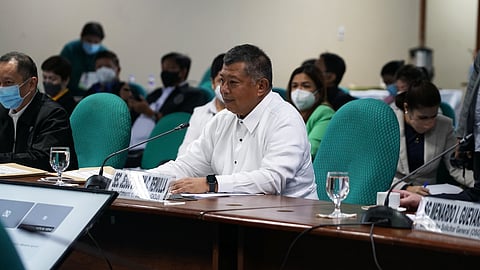
- NEWS
- the EDIT
- COMMENTARY
- BUSINESS
- LIFE
- SHOW
- ACTION
- GLOBAL GOALS
- SNAPS
- DYARYO TIRADA
- MORE

Justice Secretary Jesus Crispin “Boying” C. Remulla reaffirmed the National Government's commitment to improving the country’s drug laws and policies and to shifting the country's paradigm towards a “human rights and health-centered” approach to combating illegal drugs.
These remarks came as the Department of Justice (DOJ) spearheaded the first-ever Philippine Drug Policy and Law Reform Summit, held from 10-12 July, 2024 at the Diamond Hotel Philippines. The summit was organized by the DOJ together with the Dangerous Drugs Board (DDB), the United Nations Office on Drugs and Crime (UNODC), the United Nations Joint Programme on Human Rights (UNJP), and the University of the Philippines (UP) College of Law.
DOJ Undersecretary Jesse Hermogenes T. Andres delivered the keynote address, where he emphasized four key aspects of a roadmap aimed at realizing this new approach.
Andres first stressed that law enforcement and prosecution reforms must recognize the importance of human rights.
He also noted that cultural change must be effected on drug awareness, with the goal of removing stigmas and understanding that drug use is a health issue that people can seek help and intervention for.
Third, Andres emphasized treatment and rehabilitation with the aid of allied medical practitioners and professionals.
Finally, he highlighted for the successful reintegration of drug users into society, with the help of local government units implementing full spectrum solutions, including consideration of the socio-economic dimension of the drug phenomenon.
Undersecretary Andres also underscored the essential role of every Filipino in implementing this new roadmap.
Secretary Remulla added, "Reforming existing drug policies and legislations related thereto is a very complicated matter requiring a comprehensive approach where the contribution of every sector of society counts. The State’s crusade against illegal drugs must be perpetually exercised without compromising basic human rights, prioritizing treatment and prevention over punitive measures."
The three-day summit aimed to pave the way for the reformation of the country’s 22-year-old Comprehensive Dangerous Drugs Act of 2002.
Another highlight of the summit was the presentation of the Rapporteur’s Outcome Report developed by the University of the Philippines Institute of Human Rights (UP IHR). The Report detailed a number of sectoral dialogues conducted throughout the country since April 2024 and recommended crafting a new national drug law, one that embraces a public health approach centered on human rights.
The event was the culmination of the three-year partnership of the country with the United Nations Joint Programme, which consistently strives for reforms and to capacitate agencies and institutionalize the campaign against illegal drugs.
